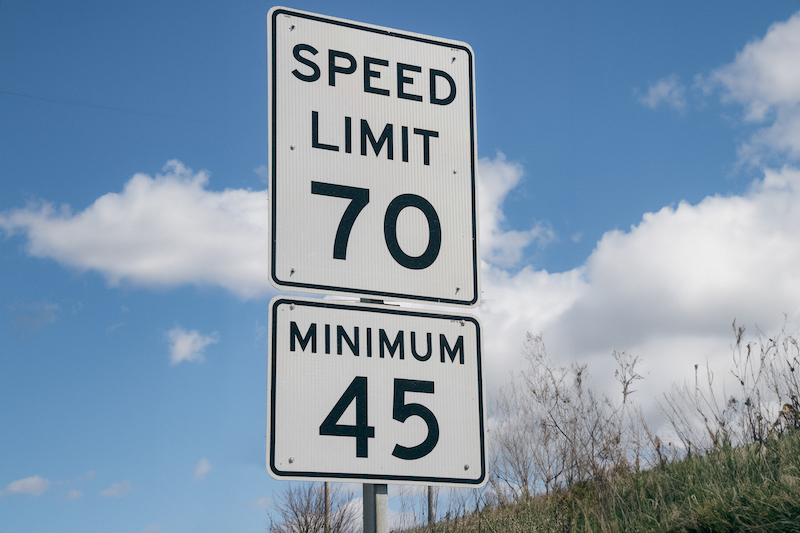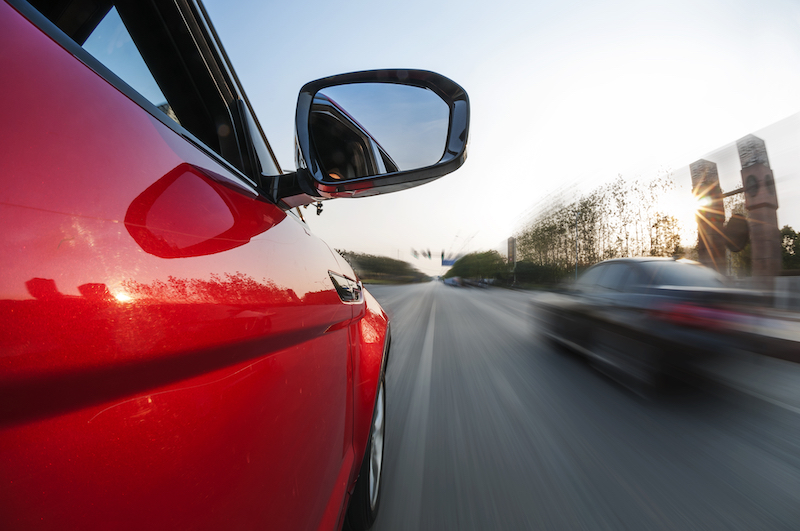7 Little Known Traffic Violations
These traffic offenses could lead to fines, points on your driving record, and even up your insurance rates.

These traffic offenses could lead to fines, points on your driving record, and even up your insurance rates.

Everyone knows that reckless speeding, running red lights, or driving under the influence are against the law.
But it’s important to know and follow all traffic laws and regulations—even the more obscure ones. You’ll keep yourself and others safe, and avoid the hefty fines (and possible insurance rate hikes) that come from traffic tickets.
Let’s take a look at some traffic offenses that may not be on your radar. (Keep in mind that laws vary from state to state, so check your local DMV’s website if you’re curious about local regulations.)

Speeding is a sure-fire way to land yourself with points on your license, did you know that driving too far below the speed limit can be too? If you drive so slowly that you’re disrupting the flow of traffic, or driving below a marked minimum speed limit, you could get a ticket.
In California, for example, you could face up to a $238 fine—and could be subject to one point on your driving record—for driving under the minimum speed limit, according to California Vehicle Code 22400 VC. State laws vary on what is considered too slow, and context matters—you probably won’t get a ticket for driving at slow speeds in heavy weather.
You might not be allowed to drive with your clean laundry scented air freshener hanging on the rearview mirror, depending on where you live.
According to Arizona State Statute 28, for example, you could be fined if you drive with fuzzy dice dangling from your rearview mirror.
A major reason that hanging objects on the rearview mirror are prohibited is that they can obstruct the driver’s view.
But some states are pushing back against this law. For example, Illinois Secretary of State Alexi Giannoulias and State Rep. La Shawn Ford are behind a bill to change this policy in their state.
If you’re involved in an accident while driving barefoot, you could get charged with reckless driving. It might be considered a secondary offense—meaning you can only get a traffic citation for this if you were already pulled over for another reason.
While it’s not illegal to drive a car barefoot or in flip flops in any of the 50 states, there are some municipalities in Tennessee where you could be fined, so make sure to check your local regulations.

Most states have “keep right” laws that outline when drivers can use the left lane, or pass another vehicle. But some states, like Connecticut, have specific restrictions that prohibit passing on the right.
Overall, it’s generally understood that drivers should keep to the right if they’re driving slower than the flow of traffic, and use the left lane for passing.
If you’re on a solo road trip, it could be tempting to have your four-legged best bud lounge on your lap while you drive. But let’s be honest—that’s a serious distraction to you and other drivers on the road.
A few states—like New Jersey and Rhode Island—require drivers to restrain their fur fam while riding in the car. You could even be charged a fine in Hawaii if you let your pet ride on your lap while you’re driving.
Even if you’re not driving somewhere with specific pet restraint laws, if you get pulled over or are in an accident while a pet is sitting on your lap, you could still get a ticket for distracted driving in many states. Not to mention if your dog gets injured in the car while not wearing a safety restraint, their treatment might not be covered by any insurance they have.
Learn more about how you can help your dog ride safely in the car here.

Nearly every state has “pull over” laws that outline how drivers should respond when an emergency vehicle—like a fire truck, or an ambulance—needs to pass you on the road.
The National Highway Traffic Safety Administration (NHTSA) recommends yielding to approaching emergency vehicles using the SIREN method.
Essentially, you should always stay alert to hear emergency vehicles approaching, stay calm while you safely pull over, and make sure the coast is clear before rejoining traffic. And never try to outrun or tailgate an emergency vehicle. Otherwise, you’ll likely get a ticket, and could even face jail time.
If you see an emergency vehicle—like an ambulance, a law enforcement vehicle, or a stationary tow truck—pulled off to the side of the road with lights flashing, get ready to slow down and move over.
Just about every state has requirements for how to approach and pass a stationary emergency vehicle. For example, New Jersey law requires drivers to change lanes into a lane that isn’t directly next to the stopped emergency vehicle, and slow down or stop if needed.
This traffic infraction could land you with a fine of up to $500, and even have two points added to your driver’s license.
Yes. When car insurance companies calculate your policy price, they crunch a lot of numbers to determine how much of a risk you pose as a driver. This includes several factors—like your mileage, driving record, and violations history.
Moving violations, traffic tickets, and accidents on your driving record can negatively impact your premium. Some minor violations (aka misdemeanors) like a speeding ticket only stay on your record for a few years. But more serious events like a DUI can remain for much longer—and make it harder to find insurance coverage, or even risk you losing driving privileges.
When it comes to the cost of your car insurance, it’s safe to say that the fewer violations on your driving history, the better.
Parking violations usually won’t directly impact your car insurance rates, as they’re not considered moving violations. But if you don’t pay your parking tickets, it could lead to a license suspension or lower credit score, which might indirectly increase your insurance premiums.
At Lemonade car insurance, we reward drivers that keep to the straight and narrow with savings. But also, we know that sometimes… shit happens. After a minor hiccup that you might have had on the road falls off your record, you’ll no longer be penalized.
Ready to drive with a new kind of car insurance? Click the button below to start your free quote.
A few quick words, because we <3 our lawyers: This post is general in nature, and any statement in it doesn’t alter the terms, conditions, exclusions, or limitations of policies issued by Lemonade, which differ according to your state of residence. You’re encouraged to discuss your specific circumstances with your own professional advisors. The purpose of this post is merely to provide you with info and insights you can use to make such discussions more productive! Naturally, all comments by, or references to, third parties represent their own views, and Lemonade assumes no responsibility for them. Coverage and discounts may not be available in all states.
Please note: Lemonade articles and other editorial content are meant for educational purposes only, and should not be relied upon instead of professional legal, insurance or financial advice. The content of these educational articles does not alter the terms, conditions, exclusions, or limitations of policies issued by Lemonade, which differ according to your state of residence. While we regularly review previously published content to ensure it is accurate and up-to-date, there may be instances in which legal conditions or policy details have changed since publication. Any hypothetical examples used in Lemonade editorial content are purely expositional. Hypothetical examples do not alter or bind Lemonade to any application of your insurance policy to the particular facts and circumstances of any actual claim.